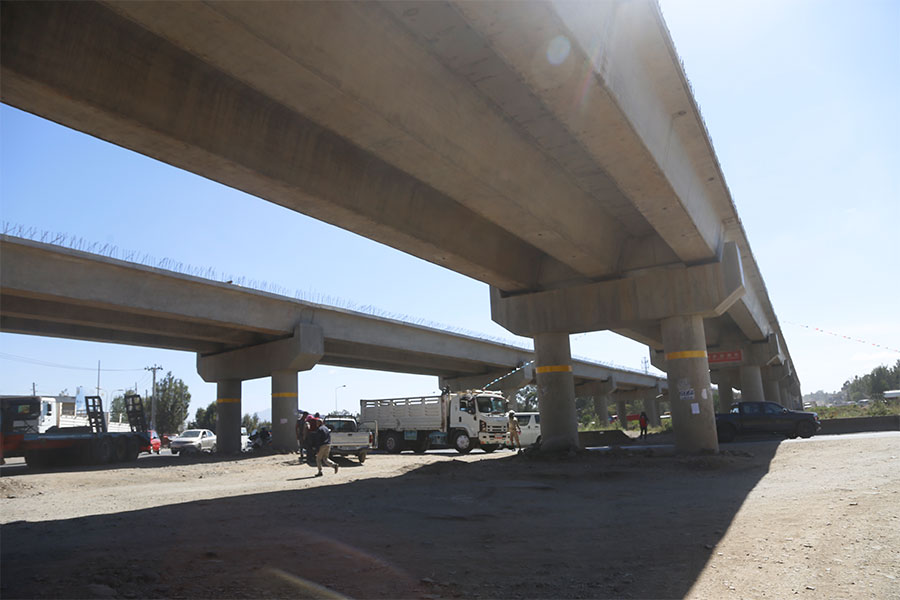
Life Matters | Apr 03,2021
Jan 7 , 2023
By Nouriel Roubini
The global war against climate change will be expensive for the public and private sectors. The mitigation and adaptation could cost trillions of dollars annually for decades to come, writes Nouriel Roubini, Professor Emeritus of Economics at New York University’s Stern School of Business.
Inflation rose sharply throughout the past year across advanced economies and emerging markets. Structural trends suggest that the problem will be secular rather than transitory. Many countries are now engaged in “wars” – some real, some metaphorical – that will lead to even larger fiscal deficits, more debt monetization, and higher inflation.
The world is going through a “geopolitical depression” topped by the escalating rivalry between the West and aligned (if not allied) revisionist powers such as China, Russia, Iran, North Korea, and Pakistan. Cold and hot wars are on the rise. Russia’s invasion of Ukraine could still expand and involve NATO. Israel – and thus the US – is on a collision course with Iran, on the threshold of becoming a nuclear-armed state. The broader Middle East is a powder keg while the US and China are facing off over the questions of who will dominate Asia and whether Taiwan will be forcibly reunited with the mainland.
Accordingly, the US, Europe, and NATO are re-arming, as is pretty much everyone in the Middle East and Asia, including Japan, which has embarked on its biggest military build-up in many decades. Higher spending levels on conventional and unconventional weapons (including nuclear, cyber, bio, and chemical) are all but assured, and these expenditures will weigh on the public purse.
The global war against climate change will be expensive for the public and private sectors. The mitigation and adaptation could cost trillions of dollars annually for decades to come, and it is silly to think that all these investments will boost growth. After a real war that destroys much of a country’s physical capital, a surge of investment can produce an economic expansion. Nonetheless, the country is poorer for having lost a large share of its wealth. The same is true of climate investments. A significant share of the existing capital stock will have to be replaced because it has become obsolete or climate-driven events have destroyed it.
We are now waging a costly war against future pandemics. For various reasons – some of them related to climate change – disease outbreaks with the potential to translate into pandemics will become more frequent. Whether countries invest in the prevention or deal with future health crises after the fact, they will incur higher costs on a perpetual basis, adding to the growing burden associated with societal aging and pay-as-you-go healthcare systems and pension plans. This implicit unfunded debt load is estimated to be close to the level of explicit public debt for most advanced economies.
Moreover, we will find ourselves fighting a war against the disruptive effects of “globotics”: the combination of globalization and automation (including artificial intelligence and robotics) threatening a growing number of blue- and white-collar occupations. Governments will be pressured to help those left behind through basic-income schemes, massive fiscal transfers, or vastly expanded public services.
These costs will remain significant even if automation leads to a surge in economic growth. For example, supporting a meager universal basic income of a thousand dollars for a month would cost the US about 20pc of its GDP.
Finally, all must fight an urgent and related war against rising income and wealth inequality. Otherwise, the malaise afflicting young people and many middles- and working-class households will continue to drive a backlash against liberal democracy and free-market capitalism. To prevent populist regimes from coming to power and pursuing reckless, unsustainable economic policies, liberal democracies must spend a fortune to reinforce their social safety nets – as many are already doing.
Fighting these five “wars” will be expensive, and economic and political factors will constrain governments’ ability to finance them with higher taxes. Tax-to-GDP ratios are already high in most advanced economies – especially Europe – and tax evasion, avoidance, and arbitrage will further complicate efforts to increase taxes on high incomes and capital, assuming such measures could even get past the lobbyists or secure buy-in from centre-right parties.
Thus, waging these necessary wars will increase government spending and transfers as a share of GDP without a commensurate increase in tax revenues. Structural budget deficits will grow even larger than they already are, potentially leading to unsustainable debt ratios that will increase borrowing costs and culminate in debt crises, with obvious adverse effects on economic growth.
For countries that borrow in their own currencies, the suitable option will be to allow higher inflation to reduce the actual value of long-term fixed-rate nominal debt. This approach functions as a capital levy against savers and creditors in favour of borrowers and debtors. It can be combined with complementary, draconian measures such as financial repression, taxes on capital, and outright default for countries that borrow in foreign currencies or whose debt is largely short-term or indexed to inflation. As the “inflation tax” is a subtle and sneaky form of taxation that does not require legislative or executive approval, it is the default path of least resistance when deficits and debts are increasingly unsustainable.
I have focused primarily on demand-side factors leading to higher spending, deficits, debt monetization, and inflation. But there are also many medium-term negative aggregate supply shocks that could add to today’s stagflationary pressures, increasing the risk of recession and cascading debt crisis. The Great Moderation is dead and buried; the Great Stagflationary Debt Crisis is upon us.
PUBLISHED ON
Jan 07,2023 [ VOL
23 , NO
1184]


Life Matters | Apr 03,2021

Fortune News | Feb 11,2023


Viewpoints | Aug 03,2025

Commentaries | Apr 28,2024

Agenda | Aug 05,2023

Commentaries | May 25,2019

Commentaries | Jan 19,2024

Viewpoints | Oct 12,2024

Agenda | Dec 30,2021

Photo Gallery | 179745 Views | May 06,2019

Photo Gallery | 169941 Views | Apr 26,2019

Photo Gallery | 160903 Views | Oct 06,2021

My Opinion | 137201 Views | Aug 14,2021

Dec 22 , 2024 . By TIZITA SHEWAFERAW
Charged with transforming colossal state-owned enterprises into modern and competitiv...

Aug 18 , 2024 . By AKSAH ITALO
Although predictable Yonas Zerihun's job in the ride-hailing service is not immune to...

Jul 28 , 2024 . By TIZITA SHEWAFERAW
Unhabitual, perhaps too many, Samuel Gebreyohannes, 38, used to occasionally enjoy a couple of beers at breakfast. However, he recently swit...

Jul 13 , 2024 . By AKSAH ITALO
Investors who rely on tractors, trucks, and field vehicles for commuting, transporting commodities, and f...

Nov 1 , 2025
The National Bank of Ethiopia (NBE) issued a statement two weeks ago that appeared to...

Oct 25 , 2025
The regulatory machinery is on overdrive. In only two years, no fewer than 35 new pro...

Oct 18 , 2025
The political establishment, notably the ruling party and its top brass, has become p...

Oct 11 , 2025
Ladislas Farago, a roving Associated Press (AP) correspondent, arrived in Ethiopia in...

Nov 2 , 2025
The National Bank of Ethiopia (NBE) has scrapped the credit-growth ceiling that had s...

Nov 2 , 2025 . By SURAFEL MULUGETA
The burgeoning data mining industry is struggling with mounting concerns following th...

Nov 2 , 2025 . By YITBAREK GETACHEW
Berhan Bank has chosen a different route in its pursuit of a new headquarters, opting for a transitional building instea...

Nov 2 , 2025 . By BEZAWIT HULUAGER
Nib International Bank S.C. has found itself at the epicentre of a severe governance...